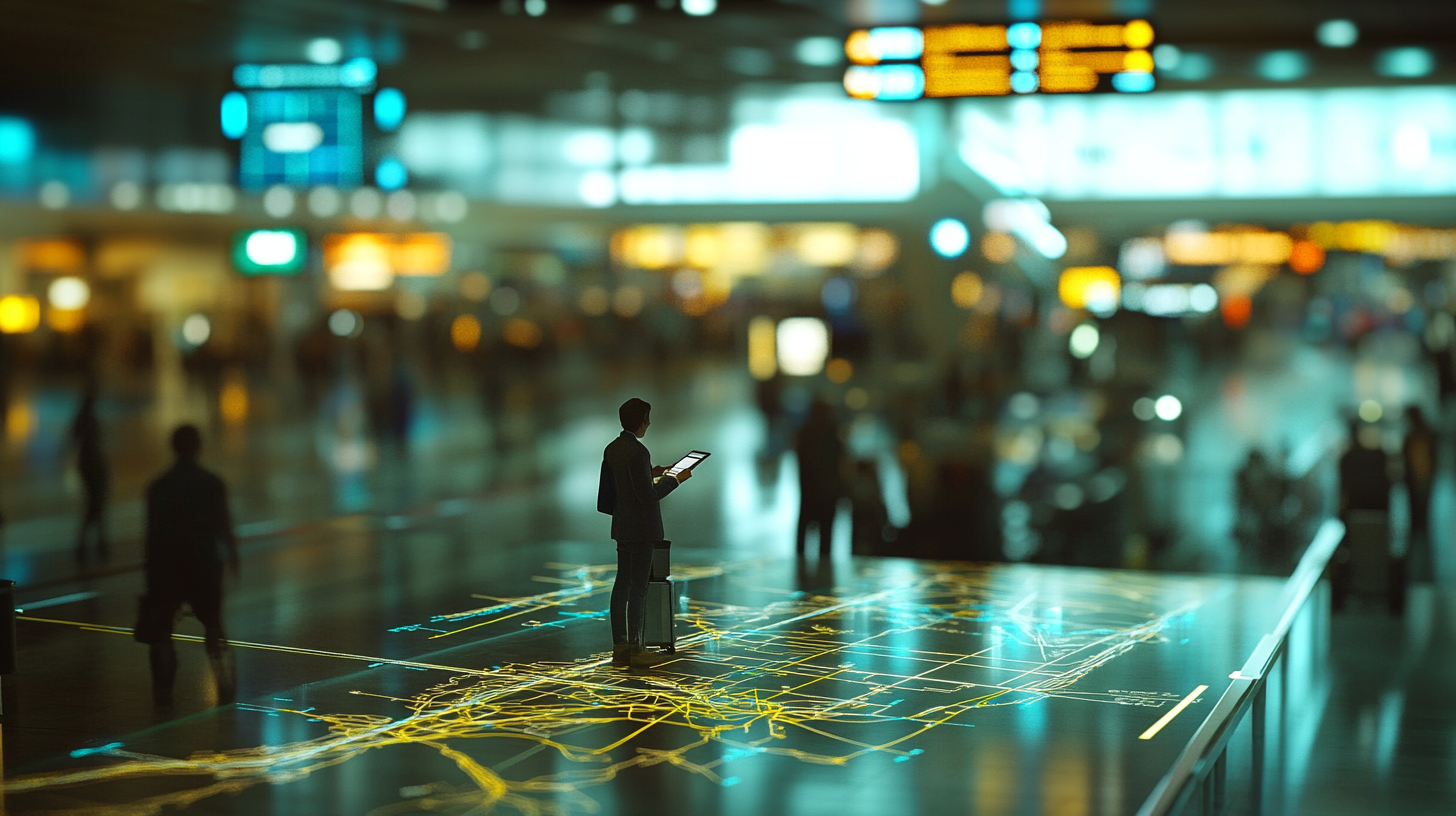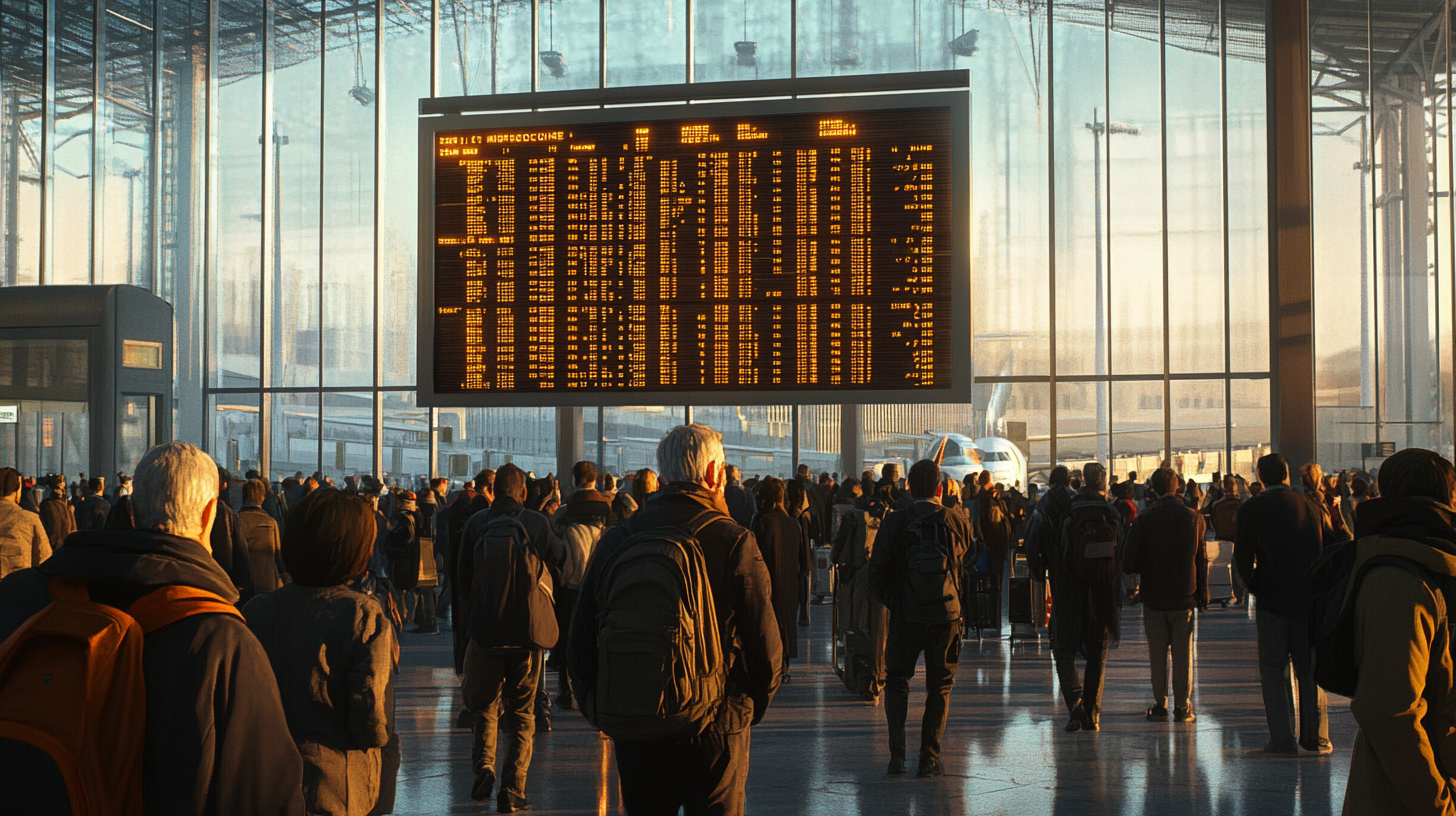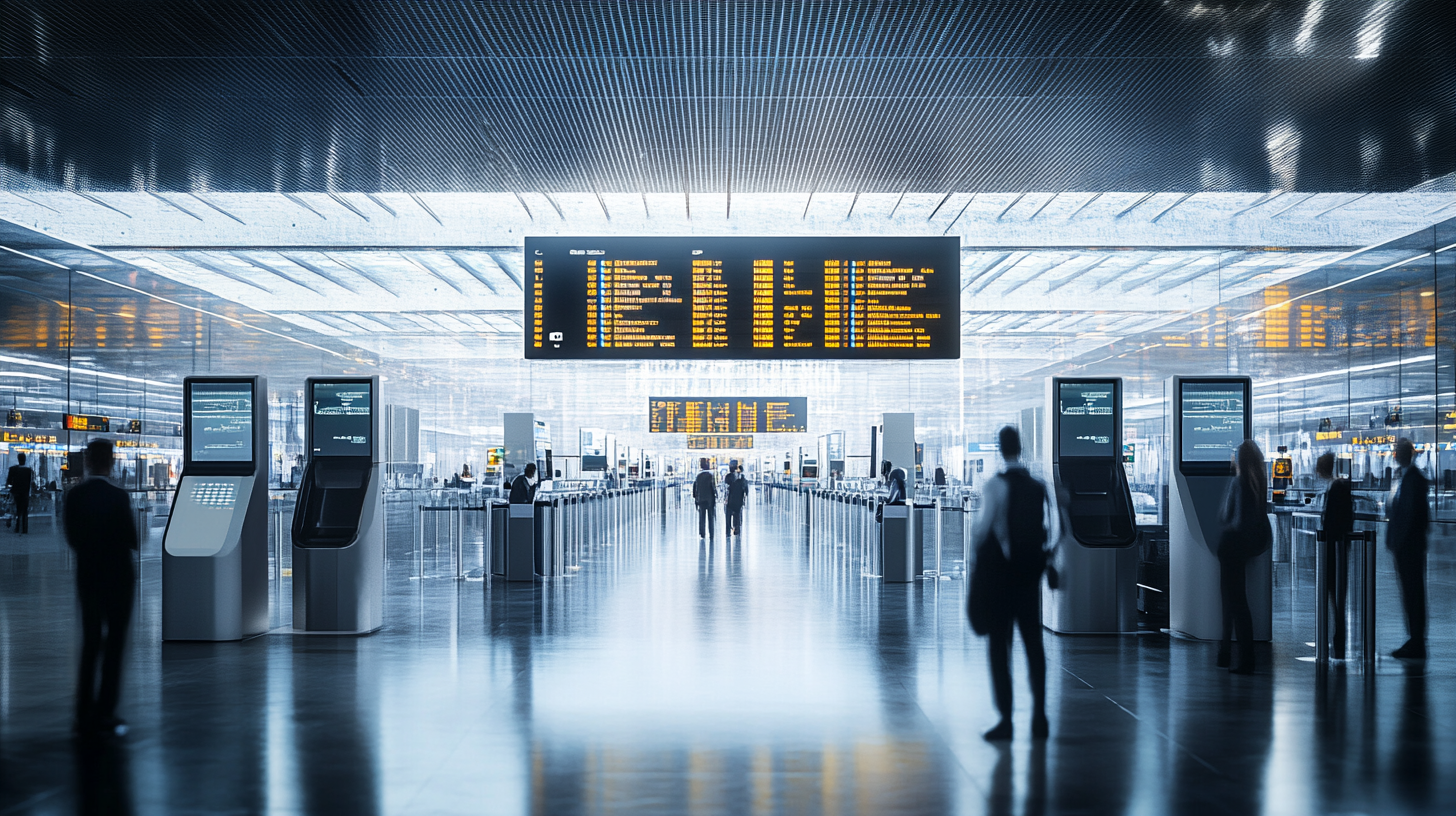What is Skiplagging? An In-Depth Look at Hidden-City Ticketing

Understanding Skiplagging: How It Works

In the ever-evolving world of air travel, where ticket prices fluctuate by the minute and travelers are bombarded with a myriad of options, savvy passengers are constantly seeking innovative ways to save money on flights. One controversial method that has soared in popularity and stirred debate in recent years is known as skiplagging, also referred to as hidden-city ticketing. Imagine booking a flight from New York to Los Angeles with a layover in Chicago, but instead of continuing to LA, you disembark in Chicago, your actual intended destination, thereby skipping the final leg of the journey. This practice leverages the complex pricing algorithms of airlines to the passenger’s advantage, potentially offering significant savings. However, skiplagging comes with its own set of risks and has sparked intense legal battles with major airlines, raising questions about the ethics and legality of this travel hack. This comprehensive exploration delves into the nuances of skiplagging, its implications for both travelers and airlines, and essential considerations for those contemplating this tactic, as explained in in-depth guide to the risks and rewards of skiplagging .
Understanding Skiplagging: How It Works

Skiplagging capitalizes on the complex and sometimes counterintuitive pricing strategies of airlines. Due to factors such as competitive markets, airline hub dynamics, and varying demand on different routes, a flight with a layover can sometimes be inexplicably cheaper than a direct flight to the layover city itself. For instance, a direct flight from New York to Chicago may be priced higher due to strong business travel demand and less competition, whereas a flight from New York to Los Angeles with a layover in Chicago might be discounted to attract more passengers on longer routes. By booking the extended route and disembarking at the layover in Chicago, passengers can circumvent the higher cost of direct flights and potentially save a substantial amount on airfare. This phenomenon is particularly prevalent in markets where certain airlines dominate specific hubs, leading to pricing that encourages passengers to choose longer itineraries, as detailed in how airline pricing strategies create skiplagging opportunities .
Reports indicate that this strategy can reduce ticket costs by up to 47%, offering significant savings for budget-conscious travelers. The reasons behind these savings are multifaceted. Airlines often price connecting flights lower to remain competitive on popular long-haul routes, subsidizing the cost to fill seats on flights that may otherwise have lower occupancy. Additionally, differences in airport taxes and fee structures between connecting and destination airports can influence fare prices. For instance, airports with higher landing fees may result in more expensive direct flights, whereas connecting flights that bypass these costs can be offered at a lower price. By understanding these pricing mechanics, travelers can leverage skiplagging to their advantage, as explored in maximizing savings through hidden-city ticketing .
The Rise of Skiplagged.com

Skiplagging gained widespread attention with the advent of innovative platforms like Skiplagged.com, which assist travelers in uncovering these elusive hidden-city fares. Founded in 2013 by tech-savvy entrepreneur Aktarer Zaman, Skiplagged leverages sophisticated algorithms to analyze airline pricing data and flight routes, pinpointing opportunities where skiplagging is possible. By democratizing access to information that was once the domain of industry insiders, the website has made the practice more accessible to the average flyer. Its rise has not only empowered consumers to find cheaper flights but also stirred significant controversy within the airline industry, leading to high-profile legal battles and discussions about the transparency of airline pricing, as highlighted in the impact of Skiplagged on airline pricing transparency .
Airlines’ Stance Against Skiplagging

While skiplagging is not illegal under federal law, it violates the contract of carriage—the legally binding agreement between a passenger and an airline that is accepted upon purchasing a ticket. Airlines contend that skiplagging undermines their pricing models and disrupts operational planning. Empty seats on final legs not only lead to potential revenue losses but also create logistical challenges, such as imbalanced passenger loads, which can affect fuel calculations and staffing. Additionally, airlines argue that widespread adoption of skiplagging could necessitate changes in fare structures, potentially resulting in higher costs for all passengers. Airlines’ strong opposition to skiplagging stems from the belief that it constitutes a breach of contract and an unethical exploitation of their pricing strategies, a viewpoint explored in airlines’ policies against hidden-city ticketing explained .
Major carriers like American Airlines, Delta, and Southwest explicitly prohibit skiplagging in their terms and conditions. They reserve the right to take action against passengers who engage in this practice, and these consequences can be significant:
- Ticket Cancellation: Airlines may void the remainder of the ticket, including return flights on round-trip bookings, leaving passengers stranded or forced to purchase new tickets at higher last-minute prices.
- Penalties and Fare Adjustments: Passengers might be billed for the difference between the fare paid and the cost of the actual itinerary flown or face additional administrative fees.
- Loyalty Program Repercussions: Frequent flyer miles can be forfeited, and memberships suspended or terminated, erasing years of accumulated benefits.
- Travel Bans: In extreme cases, airlines may ban passengers from future flights, effectively blacklisting them from certain carriers.
These measures underscore the seriousness with which airlines view skiplagging and their commitment to enforcing their contractual agreements with passengers.
Legal Battles and Lawsuits

The controversy over skiplagging has escalated into significant legal action, most notably American Airlines’ lawsuit against Skiplagged and its founder, Aktarer Zaman. The airline alleges that the website not only promotes a practice that breaches its contract of carriage but also results in substantial financial losses due to fare circumvention. Skiplagged, on the other hand, has previously faced and survived similar lawsuits from other airlines, such as United Airlines and Orbitz in 2014, asserting that it merely provides publicly available information and does not compel travelers to violate any agreements. The legal battles have raised questions about the legality of publishing fare information and whether facilitating skiplagging constitutes tortious interference with airline contracts, as discussed in legal challenges surrounding hidden-city ticketing .
Legal experts note that while passengers have occasionally won court rulings in favor of skiplagging, these battles can be time-consuming and costly. The lack of definitive regulation means outcomes can vary by jurisdiction and specific circumstances. Furthermore, the U.S. Department of Transportation has not specifically addressed skiplagging in its policies, leaving a gray area in regulatory oversight. This ambiguity places both airlines and passengers in uncertain legal territory, making it essential for travelers to be fully informed of the potential legal ramifications before engaging in skiplagging.
Potential Risks for Travelers

Before considering skiplagging, passengers should be acutely aware of the associated risks, which can outweigh the potential savings if not carefully managed, as highlighted in risks associated with hidden-city ticketing .
- Itinerary Changes: Airlines frequently alter flight routes, schedules, or aircraft assignments due to operational needs, weather conditions, or technical issues. Such changes may result in passengers being rebooked on a different flight that bypasses the intended layover city altogether, thwarting the skiplagging plan. For example, a passenger intending to disembark in Chicago might find themselves on a direct flight from New York to Los Angeles without any opportunity to exit early.
- Checked Baggage Issues: Since checked bags are tagged to the final destination of the ticketed itinerary, skiplagging is only feasible when traveling with carry-on luggage. Attempting to retrieve checked baggage at the layover is typically not permitted and can arouse suspicion. Moreover, strict carry-on policies may limit what passengers can bring, posing challenges for longer trips.
- Frequent Flyer Impact: Airlines monitor frequent flyer accounts for irregularities. Repeated skiplagging can lead to the loss of loyalty program benefits, including accrued miles, elite status, and associated perks. This can represent a significant loss, especially for frequent travelers who rely on these benefits for upgrades and cost savings.
- Detection and Penalties: Airlines are increasingly enhancing their methods for detecting skiplagging, employing advanced data analytics to identify patterns of suspicious booking behaviors. Passengers caught skiplagging may face penalties ranging from fare adjustments to legal action. The stress and potential financial repercussions can far exceed the initial savings.
Travelers like Amanda, a self-proclaimed travel expert, have reported saving thousands of dollars through skiplagging. However, she acknowledges the potential consequences, such as being barred from future flights or losing miles, and advises caution. Her experiences serve as a cautionary tale that, while the financial benefits can be alluring, the practice requires careful consideration and acceptance of the associated risks, as further explored in personal experiences with skiplagging: pros and cons .
Alternatives to Skiplagging

For those seeking to save on airfare without the inherent risks associated with skiplagging, travel experts recommend several legitimate and effective strategies that can lead to significant savings:
- Flexible Travel Dates and Airports: By adjusting travel plans to off-peak times or days of the week, travelers can take advantage of lower fares. Flying mid-week or during early morning or late-night hours often results in cheaper tickets. Additionally, considering alternative airports within reasonable proximity can reveal less expensive options due to varying airport fees and competitive dynamics.
- Incognito Browsing: Airlines and travel booking sites may use cookies to track search history, potentially increasing prices when a particular route is repeatedly searched. Using incognito or private browsing mode can prevent this price inflation, ensuring that travelers see the lowest available fares.
- Utilizing Travel Rewards: Earning and redeeming points through airline credit cards, loyalty programs, and travel rewards can significantly offset travel costs. Strategic use of sign-up bonuses, spending categories, and partner promotions can maximize the value of these programs.
- Flight Deal Websites: Monitoring platforms that track fare drops, flash sales, and promotional offers can yield legitimate savings without violating airline policies. Subscribing to newsletters or alerts from such websites can keep travelers informed of the best deals as they arise.
Travel consultants like Anton Radchenko and Echo Wang recommend these approaches as safer and more sustainable methods for reducing travel expenses, emphasizing that understanding the legitimate ways to save on flights is both ethical and effective, as outlined in legitimate strategies for saving on airfare .
The Future of Skiplagging

As airlines continue to crack down on skiplagging, particularly in the wake of revenue losses stemming from the COVID-19 pandemic, travelers may find it increasingly difficult to employ this tactic without repercussions. Airlines are investing in enhanced detection algorithms and data analytics, scrutinizing booking patterns more closely, and collaborating with each other to identify and penalize offenders. Stricter enforcement of contract terms and potential legal action suggest that the window for skiplagging is narrowing.
The ongoing debate over the ethics and legality of skiplagging highlights the tension between consumer rights and corporate policies. While some consumers view it as a clever workaround of an opaque and often unfair pricing system, airlines regard it as a deliberate violation that undermines their business models and profitability. As the industry evolves, there may be calls for greater transparency in pricing or regulatory intervention to address these issues, as discussed in the future of skiplagging and airline pricing .
Final Thoughts

Skiplagging presents a tempting opportunity for substantial savings on airfare, tapping into the frustrations many travelers feel towards seemingly arbitrary and ever-increasing flight prices. However, it is not without significant risks and ethical considerations. Travelers must carefully weigh the potential benefits against the possible consequences, which include legal action, financial penalties, disrupted travel plans, and the loss of travel privileges.
By thoroughly understanding the practice, acknowledging its contentious nature, and exploring alternative cost-saving measures, passengers can make informed decisions about their travel plans. Embracing legitimate strategies not only ensures compliance with airline policies but also contributes to a more sustainable and transparent travel industry.
Ultimately, the choice to skiplag rests with the individual, but it is essential to be fully aware of the implications. As the landscape of air travel continues to evolve, staying informed and adaptable remains key to navigating the skies economically and responsibly. Continuing to educate oneself on travel practices, airline policies, and market trends, as provided in comprehensive guide to ethical travel practices , empowers travelers to make choices that align with both their financial interests and personal values.
Follow us back to Seat 5A for more insights and updates on travel strategies and industry trends.






